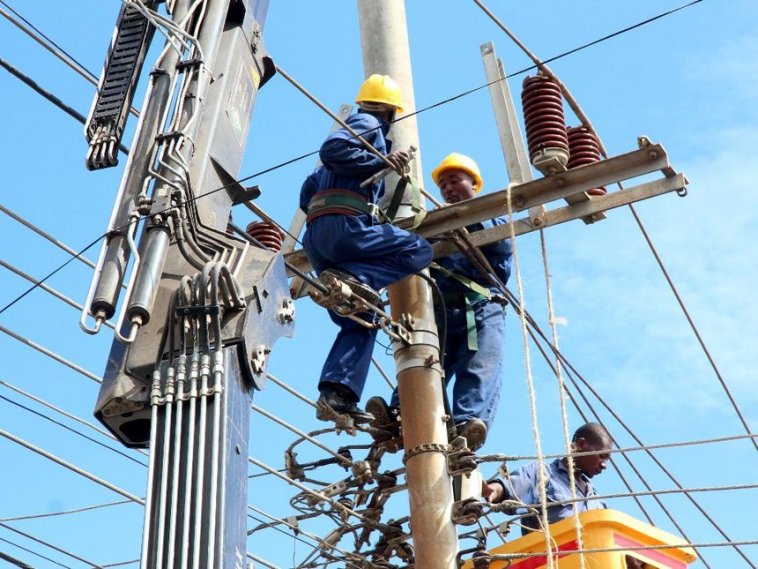[PHOTO/ COURTESY] Kenya Power demanded Ksh2.8 billion from businessman Narendra Raval to connect his clinker factory in Emali with electricity, it has emerged.
According to reports by the Daily Nation , the connection would have given Kenya Power Ksh200 million every month in power consumption bill.
Raval felt that the connection bill was too much, and resorted to constructing his own power plant at a fraction of Kenya Power’s connection cost.
He says that the power plant would provide cheaper power compared to Kenya Power’s, and proved to be more reliable.
“I now produce 28 megawatts of power and I plan to generate my own power in all my other factories to ensure that we are self-reliant,” said Mr Raval.
Read: Bernard Ngugi Exits as Kenya Power CEO, Rosemary Oduor Appointed In An Acting Capacity
Mr Raval, who owns Devki Group of Companies, blames Kenya Power for the high cost of locally produced goods, whose prices are hiked due to the high cost of power.
“Kenya Power now loses revenues of about Ksh200 million a month because of that decision,” He added.
Mr Raval has so far invested nearly Ksh40 billion in the clinker-producing factory at Emali.
The high cost of power is attributed to Kenya Power’s decision to purchase power from independent producers with high prices, pushing the retail prices of one unit to around Ksh19.
KenGen supplies power at Ksh5.46 per kilowatt-hour, meaning Kenya Power’s prices are three times the purchase price.KenGen gives Kenya Power 71.7 percent of all the energy it distributes, but its costs are proportionate to 48.3 percent. On the other hand, independent power producers supply 26.5 percent of power but account for 47.6 percent of the costs.Following the high cost of electric power from Kenya Power, many manufacturing companies have opted to set up their own power plants, while domestic consumers have opted for solar energy.For instance, Total Kenya has shifted 107 service stations to solar, by installing 3,390 solar panels.Despite the high power costs, Kenya power has been operating in the red with liabilities like Ksh47.9 billion debt owed to electricity suppliers like KenGen and other creditors.Kenya Power Owes Ksh23.7 billion to KenGen, Ksh19.5 billion to Independent Power Producers(IPPs), and another Ksh4.7 billion owed to Kenya Electricity Transmission Company (KETRACO).Kenya Power reported an unaudited net loss of Ksh2.98 billion in the financial year ended June 2020, as compared to a net profit of Ksh262 million it posted in the year to […]
